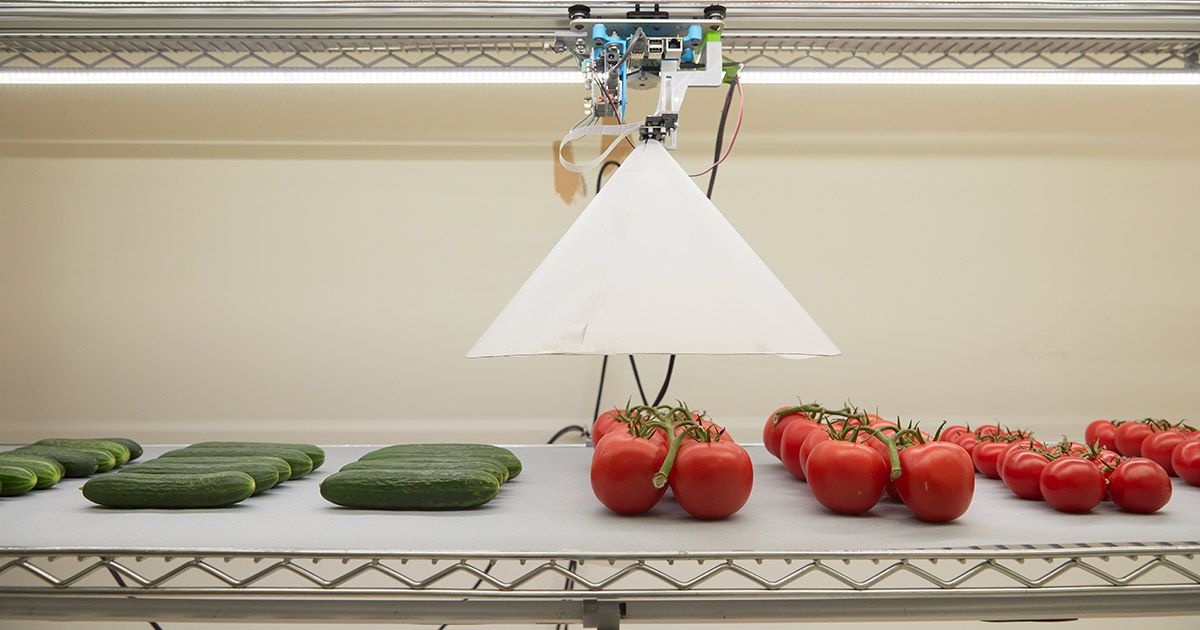 Skip to content Bloomberg the Company & Its Products The Company & its Products Bloomberg Terminal Demo Request Bloomberg Anywhere Remote Login Bloomberg Anywhere Login Bloomberg Customer Support Customer Support Menu Search Bloomberg Businessweek Sign In Sign Out Subscribe Home Markets Technology Politics Wealth Pursuits Opinion Businessweek New Economy Green CityLab Video Podcasts Radio Newsletters Watchlist Subscribe Sign in Submit a Tip Help Center License Read Bloomberg New Economy Future Finance Wealth Next China Crypto Checkout Hyperdrive Well Spent Prognosis Equality Good Business Billionaires Graphics Sponsored Content Screentime Retirement Center Watch The David Rubenstein Show Art + Technology Inspire GO Special Reports Where to Invest $10,000 50 Companies to Watch in 2018 Where to Invest $1 Million Follow Facebook Twitter Instagram LinkedIn Read Economics Deals The FIX | Fixed Income ETFs FX Factor Investing Markets Magazine Watch Daybreak Surveillance Markets What’d You Miss Real Yield Charting Futures Futures in Focus Follow Twitter Facebook Data Stocks Currencies Commodities Rates & Bonds Sectors Economic Calendar Listen What Goes Up Stephanomics Odd Lots Surveillance P&L Trillions Read Work Shifting Code Wars Startups AI Mobile Big Data Cloud Computing U.S.Global Special Reports The Elon Musk Tracker Tesla Model 3 Tracker Watch Bloomberg Technology TV Studio 1.0 Listen Decrypted Follow Twitter Facebook Read Election 2020 Trump Tracker Global Trade Tracker Listen Sound On Bloomberg Law Watch Balance of Power Subscribe Balance of Power Follow Twitter Facebook Read Investing Living Opinion & Advice Savings & Retirement Taxes Reinvention Watch Good Money Listen The Paycheck Follow Twitter Facebook Instagram Read Travel Autos Homes Living Culture Style Special Reports Property Listings London Property Prices New York Property Prices How to Spend Your Bonus Watch Made Traveler Invitation Only Follow Twitter Facebook Instagram Read Editorials Follow Twitter Facebook Instagram Listen Masters in Business Subscribe Bloomberg Opinion Today Money Stuff Ritholtz’s Reads Early Returns Sparklines Special Reports Sooner Than You Think Business of Equality The Year Ahead: 2020 The Bloomberg 50 Best B-Schools Watch Hello World The Magazine Subscribe Follow Twitter Facebook Instagram Watch New Economy Conversation Series Listen Stephanomics Subscribe Turning Points Follow Twitter Facebook New Economy Forum Read Science & Energy Climate Adaptation Finance Politics Culture & Design Special Reports Data Dash Subscribe Daily newsletter Follow Twitter Facebook Instagram Read Design Culture Transportation Economy Environment Housing Justice Government Subscribe Daily newsletter Follow Twitter Facebook Instagram LinkedIn Watch Live TV US Europe Asia Australia Schedule+Shows Shows Surveillance Daybreak Markets Balance of Power What’d You Miss? Bloomberg Technology All Shows…Series Next Jobs Hello World Storylines Game Changers Profiles Traveler Journey Through South Korea All Series Follow QuickTake YouTube Twitter Facebook Listen What Goes Up Stephanomics Odd Lots Decrypted Masters in Business Surveillance P&L Businessweek The Pay Check Prognosis Travel Genius Works for Me Trillions All Podcasts… All Radio Shows… A Plant-Based Coating Helps Small Farmers Stop Crop Rot Developed by Apeel Sciences, it can double or triple the shelf life of fresh produce.
Skip to content Bloomberg the Company & Its Products The Company & its Products Bloomberg Terminal Demo Request Bloomberg Anywhere Remote Login Bloomberg Anywhere Login Bloomberg Customer Support Customer Support Menu Search Bloomberg Businessweek Sign In Sign Out Subscribe Home Markets Technology Politics Wealth Pursuits Opinion Businessweek New Economy Green CityLab Video Podcasts Radio Newsletters Watchlist Subscribe Sign in Submit a Tip Help Center License Read Bloomberg New Economy Future Finance Wealth Next China Crypto Checkout Hyperdrive Well Spent Prognosis Equality Good Business Billionaires Graphics Sponsored Content Screentime Retirement Center Watch The David Rubenstein Show Art + Technology Inspire GO Special Reports Where to Invest $10,000 50 Companies to Watch in 2018 Where to Invest $1 Million Follow Facebook Twitter Instagram LinkedIn Read Economics Deals The FIX | Fixed Income ETFs FX Factor Investing Markets Magazine Watch Daybreak Surveillance Markets What’d You Miss Real Yield Charting Futures Futures in Focus Follow Twitter Facebook Data Stocks Currencies Commodities Rates & Bonds Sectors Economic Calendar Listen What Goes Up Stephanomics Odd Lots Surveillance P&L Trillions Read Work Shifting Code Wars Startups AI Mobile Big Data Cloud Computing U.S.Global Special Reports The Elon Musk Tracker Tesla Model 3 Tracker Watch Bloomberg Technology TV Studio 1.0 Listen Decrypted Follow Twitter Facebook Read Election 2020 Trump Tracker Global Trade Tracker Listen Sound On Bloomberg Law Watch Balance of Power Subscribe Balance of Power Follow Twitter Facebook Read Investing Living Opinion & Advice Savings & Retirement Taxes Reinvention Watch Good Money Listen The Paycheck Follow Twitter Facebook Instagram Read Travel Autos Homes Living Culture Style Special Reports Property Listings London Property Prices New York Property Prices How to Spend Your Bonus Watch Made Traveler Invitation Only Follow Twitter Facebook Instagram Read Editorials Follow Twitter Facebook Instagram Listen Masters in Business Subscribe Bloomberg Opinion Today Money Stuff Ritholtz’s Reads Early Returns Sparklines Special Reports Sooner Than You Think Business of Equality The Year Ahead: 2020 The Bloomberg 50 Best B-Schools Watch Hello World The Magazine Subscribe Follow Twitter Facebook Instagram Watch New Economy Conversation Series Listen Stephanomics Subscribe Turning Points Follow Twitter Facebook New Economy Forum Read Science & Energy Climate Adaptation Finance Politics Culture & Design Special Reports Data Dash Subscribe Daily newsletter Follow Twitter Facebook Instagram Read Design Culture Transportation Economy Environment Housing Justice Government Subscribe Daily newsletter Follow Twitter Facebook Instagram LinkedIn Watch Live TV US Europe Asia Australia Schedule+Shows Shows Surveillance Daybreak Markets Balance of Power What’d You Miss? Bloomberg Technology All Shows…Series Next Jobs Hello World Storylines Game Changers Profiles Traveler Journey Through South Korea All Series Follow QuickTake YouTube Twitter Facebook Listen What Goes Up Stephanomics Odd Lots Decrypted Masters in Business Surveillance P&L Businessweek The Pay Check Prognosis Travel Genius Works for Me Trillions All Podcasts… All Radio Shows… A Plant-Based Coating Helps Small Farmers Stop Crop Rot Developed by Apeel Sciences, it can double or triple the shelf life of fresh produce.
By Paul Tullis More stories by Paul Tullis October 27, 2020, 12:01 AM EDT From Once smallholder farmers in the Kenyan village of Masii have picked their crops, all they can do is wait until a buyer trucks through.The system works fairly well for beans and corn, but mangoes—the area’s other main crop—spoil more quickly.If the trader is late, they rot.
“We lose market because the mangoes go spotty,” says Obadiah Kisaingu, chair of the Masii Horticultural Farmers’ Cooperative Society.He estimates 40% of the co-op’s mango crop is lost to spoilage.But a simple coating could change that.A California company has created a formulation that doubles—or for some foods even triples—the shelf life of fresh produce, enabling farmers like Kisaingu to access far-off, larger markets.
Apeel Sciences Inc.
, based in Santa Barbara, exceeded a $1 billion valuation in May when it received $250 million in financing from Oprah Winfrey and Singapore’s sovereign wealth fund GIC Pte Ltd., adding to earlier investments from Andreessen Horowitz and other venture capitalists.(Bloomberg LP, which owns , is an investor in Andreessen Horowitz.) On Oct.27 the International Finance Corp., the World Bank’s private-sector arm, announced a $30 million investment in Apeel, a move that will open networks in East Africa, South America, and, pending regulatory approval, Southeast Asia.Singapore-owned investment company Temasek Holdings Pte Ltd.
and food-focused impact investor Astanor Ventures are partners in the equity deal.
“This is a way to almost leapfrog the necessity of cold-storage chains and bring products to mature markets, where farmers can get better value for their crops,” says Stephanie von Friedeburg, the IFC’s interim managing director.More time for fresh produce on grocers’ shelves means less food waste—a $2.6 trillion problem, according to the United Nations’ Food and Agriculture Organization.Project Drawdown, a San Francisco-based nonprofit that analyzes climate solutions, says fixing it would be one of the most effective ways to reduce greenhouse gas emissions.
The investment brings Apeel closer to what James Rogers, 35, envisioned when he founded the company eight years ago.Rogers, who has a Ph.D.
in materials science, wanted to solve the problem for food much in the same way that oxide barriers preventing rust have achieved for steel.He developed a natural, tasteless, and odorless protective coating from plant material—stems, leaves, skins, basically whatever gets discarded—that maintains the freshness of food for longer by holding water in and keeping oxygen out.The product extends the sweet spot between ripening and rot .
And best of all, the treated produce doesn’t require refrigeration, says Rogers, the chief executive officer.
Apeel traveled a long road to get here.It was six years from launch before products applied with the substance were in stores.Whether the company can cost-effectively reach small farmers in far-flung areas still remains a challenge.
Rival technologies include Bluapple, which isolates excess ethylene—a hormone that triggers ripening in some produce—and antimicrobial packaging.Blasting foods with blue light, radio waves, or plasma has shown potential in the lab, but those methods aren’t yet commercialized.
Apeel-treated fruits and vegetables are already in the largest grocery chains in Germany, Denmark, Switzerland, and the U.S., as well as Walmart Inc., and the company recently gained regulatory approval in Kenya, Uganda, Costa Rica, Colombia, and Ecuador.“We have 50% less waste of Apeel-treated produce and 30% more sales,” says Mario Slunitschek, a vice president at Edeka, which operates more than 11,000 grocery stores in Germany.
The lack of access to cold-storage infrastructure raises farmers’ costs while reducing their income.Fruit picked too early doesn’t develop as much sugar, so it’s less sweet.But harvesting late risks the fruit going to rot.So Kisaingu’s co-op members gather only a small amount at a time, as the fruit ripens.
Repeated trips to the field are labor-intensive, while frequent visits from the traders raise their costs and reduce the amount they’ll pay for the co-op’s mangoes.Such stagnated harvesting closes the doors of big distributors, which want to make large purchases all at once and fly tree-ripened fruit overseas, or mature the earlier-picked produce in cold storage in Europe, a key market.
“Apeel has huge potential to turn subsistence farmers in Africa into commercial farmers,” says Christina Owen, senior program officer at the Bill & Melinda Gates Foundation, which helped Apeel launch with a $100,000 grant.“That means more money in pockets, and more food in bellies.”.
